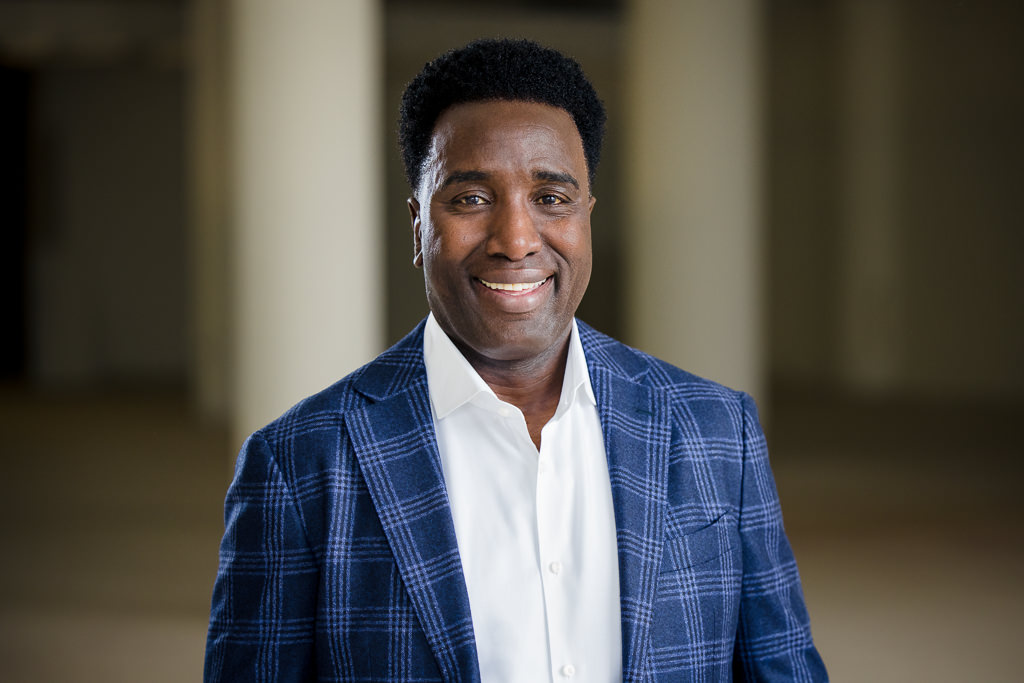Co-ops Helped Alumnus Reach Top Tier of Computer Industry

Quincy Allen, E’82, electrical engineering, attributes his three co-ops to setting him apart from others when he graduated and landed a job at Xerox Corp., where he eventually became president of its Production Systems Group. Today, he continues to support technology companies as a board member.
As a high school senior in 1977, Quincy Allen, E’82, electrical engineering, attended a presentation by Northeastern recruiters and when he heard about the co-op program, he remembers thinking, why would anyone want to do it any other way?
“I just fell in love with the idea of getting a degree in five years with two years of practical work experience,” Allen says.
He believed on-the-job learning during college would help him stand out in the job market and give him a competitive edge. He was correct. Upon graduation, Allen began his first job at Xerox Corp., where he stood out among a group of new hires, receiving more demanding assignments than his peers and a better salary because of his co-op experiences.
“Co-ops are a great springboard for your career,” Allen says. “They were a big head start for me.”
Ultimately, Allen had a 27-year career at Xerox, culminating in his tenure as president of its Production Systems Group, which at the time was a $4.5 billion business focused on high-end systems, software, and services for the graphic communications industry. In 2009, he left Xerox to take the CEO position at Vertis Communications, and later held positions as chief marketing strategy officer at Unisys and chief marketing officer of the IBM cloud division. In 2019, Allen moved into semi-retirement, devoting his time to supporting companies and organizations through board membership and doing volunteer work in his community.
Decades before his corporate success, Allen was a studious child who from an early age liked to plan and think through his options. He enjoyed spending time at his father’s TV repair shop in Mattapan, a neighborhood of Boston, Massachusetts, where he would tinker with radios and television sets and first developed an affinity for electronics. Allen also excelled in math and credits his high school math teacher, Mrs. Parker, who taught Algebra II and trigonometry for seeing his potential and spending time with him and other standout students after school to work on math problems and sharpen their skills.
“I’m a product of the Boston Public Schools and a believer in public education,” Allen says. “I had an interest in school and teachers took an interest in me and helped me along the way.”
He graduated high school at 17 years old. He wasn’t ready to live on a college campus, so he commuted to Northeastern while living at home. “I thought there would be a higher probability that I could focus on school and actually succeed because I didn’t know if I was mature enough to do it on my own,” Allen says.
At Northeastern, he completed three co-ops, including one at Analogic, where he worked in a product testing department. Allen was struck by the company’s ability to match the work assignments to a co-op’s skill level to ensure success.
“I had a great experience, but I wanted to have a series of good experiences, rather than stay in one place,” Allen said. “I wanted to maximize the outcome of my educational experience.”
At another co-op, he was as a components engineer at Verbex, a company that at the time was funded by Exxon Mobil and was working on an early version of a voicemail system. Unfortunately, Exxon reduced its financial support because of an economic downturn in 1980, causing the company to lay off several employees, including Allen.
“I called my co-op coordinator,” Allen says, “and the next day, I had three interviews lined up.” He was able to secure another co-op assignment in three days.
“This is what Northeastern does best,” Allen adds. “They have the best relationships with people in industry. They can call someone and say, ‘I have a student who needs a job immediately.’”
Allen was focused and organized during his co-op experiences, creating a weekly list of what he wanted to accomplish and then revisiting the list throughout the week to make sure he was meeting his personal goals.
He says other supports at Northeastern, including student groups such as the Black Engineering Student Society (BESS), helped him establish his career.
“When I was a student, Northeastern was ahead of its time in the development of a 360-degree support system for students,” Allen says. “BESS created a sense of community for us, provided academic support, created networking opportunities with other engineering majors and helped us develop as engineers.”
His early successes at Xerox led to a career path within the company that included jobs with increasing responsibilities in such areas as research and development, sales and marketing, integrated supply chain, services delivery, and acquisition strategy. While at Xerox, he earned an MBA from the University of Rochester.
Today, he sits on the board of three public companies, ABM Industries, Lumen Technologies, and Office Depot.
He enjoys being a lifelong learner. In 2016 he learned to code in Python to understand how developers, develop and run cloud applications. In 2023, he earned a certificate in cybersecurity and cybersecurity oversight from the Software Engineering Institute at Carnegie Mellon University.
And his Northeastern engineering education still comes in handy. “It’s a differentiator even in my board roles today, and I can always draw on it,” Allen says.